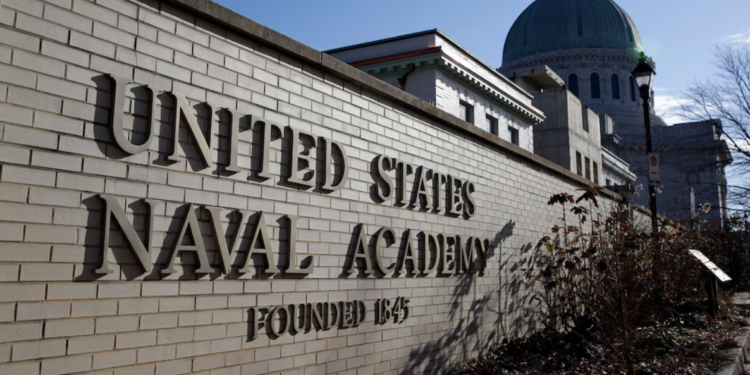Dec 8, 2024 Story by: Editor
BALTIMORE (AP) — A federal judge ruled Friday that the U.S. Naval Academy can continue considering race in its admissions process, emphasizing the unique national security needs of the military. The decision differentiates the academy from civilian universities, which were barred from using race as a factor in admissions following a landmark U.S. Supreme Court ruling last year.
The case was brought by Students for Fair Admissions, the same group that successfully challenged affirmative action policies at civilian colleges. However, the Supreme Court’s ruling left open the possibility of exemptions for military academies, citing national security interests as a potential justification.
In a detailed opinion, Judge Richard Bennett rejected the challenge against the Annapolis-based Naval Academy, affirming the school’s argument that a diverse officer corps strengthens the military’s cohesion, effectiveness, and public trust.
“Compelling National Security Interest”
Judge Bennett, a George W. Bush appointee with over two decades of service in the U.S. Army Reserve and Maryland National Guard, stated, “The Academy has tied its use of race to the realization of an officer corps that represents the country it protects and the people it leads.” He further noted, “The Academy has proven that this national security interest is indeed measurable and that its admissions program is narrowly tailored to meet that interest.”
Bennett clarified that race is a minor factor in Naval Academy admissions and that no applicant is admitted solely based on race. He also pointed out that the group challenging the policy includes “four individuals whose prior applications to the U.S. Naval Academy were denied.”
Plaintiff’s Response and Future Plans
Edward Blum, president of Students for Fair Admissions, announced plans to appeal the decision. “It is our hope that the U.S. military academies ultimately will be compelled to follow the Supreme Court’s prohibition of race in college admissions,” Blum said in a statement.
During the trial, attorneys for the group argued that prioritizing minority candidates is unfair to qualified white applicants and that military cohesion should stem from training and command structure rather than demographic factors.
Diverse Testimonies and Military History
The trial featured testimony from current and former military officials with differing perspectives on how race impacts service members’ experiences. Some advocated for evaluating candidates solely based on performance standards, while others highlighted the critical role of diversity in fostering trust and cohesion.
Historians also recounted the military’s history of racial tensions, noting instances where such issues jeopardized wartime readiness. Bennett referenced this testimony in his ruling, writing, “The United States military has long made the judgment that developing and maintaining a fighting force that is qualified and demographically diverse at all levels is critical for mission effectiveness.”
Support from Civil Rights Advocates
The Legal Defense Fund, which supported the Naval Academy in the case, praised the decision. Senior counsel Michaele Turnage Young stated, “The military is keenly aware that a climate of distrust caused by a lack of equal opportunity along racial lines risks mission failure and loss of life. It is unfortunate that some are willing to undermine the safety of our sailors and risk our country’s national security by promoting exclusion.”
Admissions Process at the Naval Academy
Court testimony revealed that the Naval Academy considers a wide range of factors in its admissions process, including grades, extracurricular activities, life experiences, and socioeconomic background. While race occasionally plays a role, it is limited and not a decisive factor.
This ruling marks the first trial outcome on military academy admissions since the Supreme Court’s affirmative action decision. Another case involving West Point is still pending. Source: AP News

















